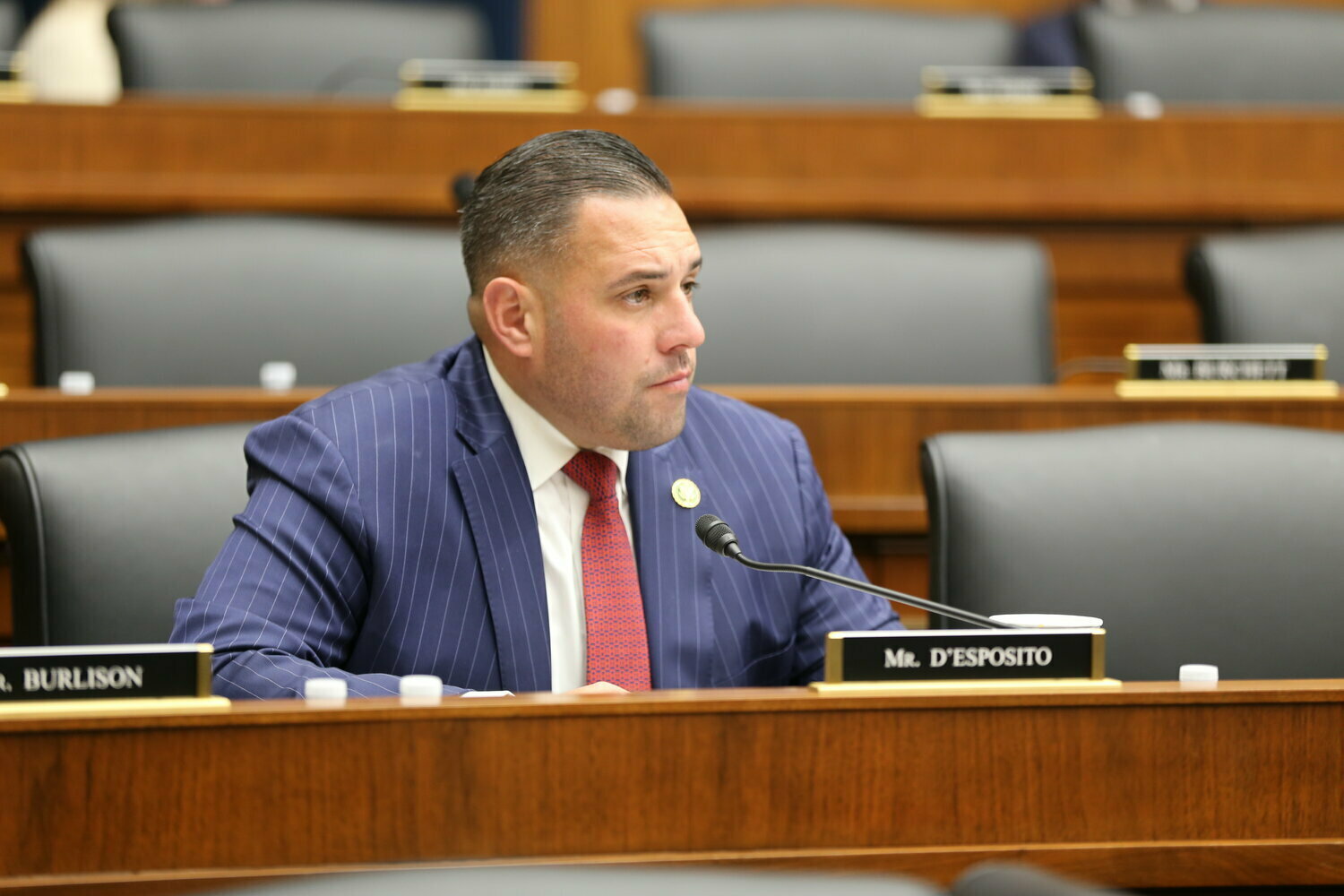Congressman D'Esposito secures funds for the Rockville Centre Police Department
U.S. Rep. Anthony D’Esposito recently secured $5.4 million in federal funding for Long Island community projects — including $241,000 for the Village of Rockville Centre Police Department earmarked to purchase six new license plate readers that will assist in criminal investigations and securing arrests.
“I am proud to have successfully secured this critical funding for important infrastructure projects that will benefit Fourth District neighbors in significant ways,” D’Esposito said in a release. “Enhancing community resiliency against flooding and providing first responders with the resources they need to safeguard the public are palpable ways the federal government can work with local partners to make life better for Long Islanders, and I am glad to have been able to facilitate this infusion of funds into our region.”
D’Esposito, a former New York City police detective and former Hempstead town councilman, secured the funding for the Rockville Centre Police Department’s new equipment through the House appropriations committee in March.
Rockville Centre Police Commissioner Randy Dodd said that thanks to the vital funding provided by the congressman, the department will be able to add additional license plate readers on Merrick Road to assist with continued efforts to combat crime and preserve the quality of life for residents.
“The funding will be used to purchase six license plate readers that will be strategically positioned and provide real-time license plate recognition, aiding our police department in swift response to criminal activities and vehicle identification for investigative means.”
License plate readers are high-tech devices utilized by local law enforcement to identify the license plates of passing motorists and will notify the RVCPD depending on whether a vehicle is unregistered, if the driver has a suspended license, or if there is a pre-existing warrant out for their arrest.
These devices are not designed to capture images of the driver, their car, or the surrounding area. They do not monitor speed or traffic violations. They are specifically there to help deter criminal behavior.
One scenario where this can help law enforcement is if a burglary were to take place in or around the village. Police can use the license plate reader to look up and find cars that left the village within a certain timeframe to help narrow down their search. This can also be a critical tool for police in missing person cases.
Every police plate reader in New York is digitally connected, meaning that the data any device collects is transmitted to every other reader in the state. This means that if another plate reader picks up a plate belonging to someone suspected of committing a crime in Rockville Centre, that department can inform RVCPD within minutes.
Police already have such devices at their disposal, including license plate readers in operation on Lakeview Avenue, North Centre Avenue, Long Beach Road, DeMott Avenue, Seaman Avenue, Hempstead Avenue, and Sunrise Highway. They also have mobile plate readers affixed to some police vehicles.
Rockville Centre Mayor Francis Murray said that over the course of his 12-year-tenure in office, the Village of Rockville Centre has received more than $52 million by aggressively seeking grants from the federal, state and local governments.
“If you think you can get away with crime in this village, you’re not. We’re going to get you,” he said. “We have cameras all around the village.”
Murray said the village board remains steadfast in its commitment to ensure the safety of the people of Rockville Centre. In addition to the new license plate readers, the department has also recently added two new police vehicles with funding provided by New York Sen. Kevin Thomas in December.
Since January, the village has also added three new uniformed officers to the department’s ranks, bringing its total up to 61 sworn officers and 36 civilian employees.
Susan Gottehrer, director of the Nassau County chapter of the New York Civil Liberties Union, argued however, that residents should also be wary of the surveillance capabilities this provides law enforcement.
“Automated license plate readers threaten the privacy of all Long Islanders,” Gottehrer said. “This invasive technology gives local police access to our every movement — where we work, who we meet, where we pray, and even which doctors we visit. Long Island residents don’t want the police or government bodies having access to their most intimate information. We deserve safety and privacy over our daily lives.”






